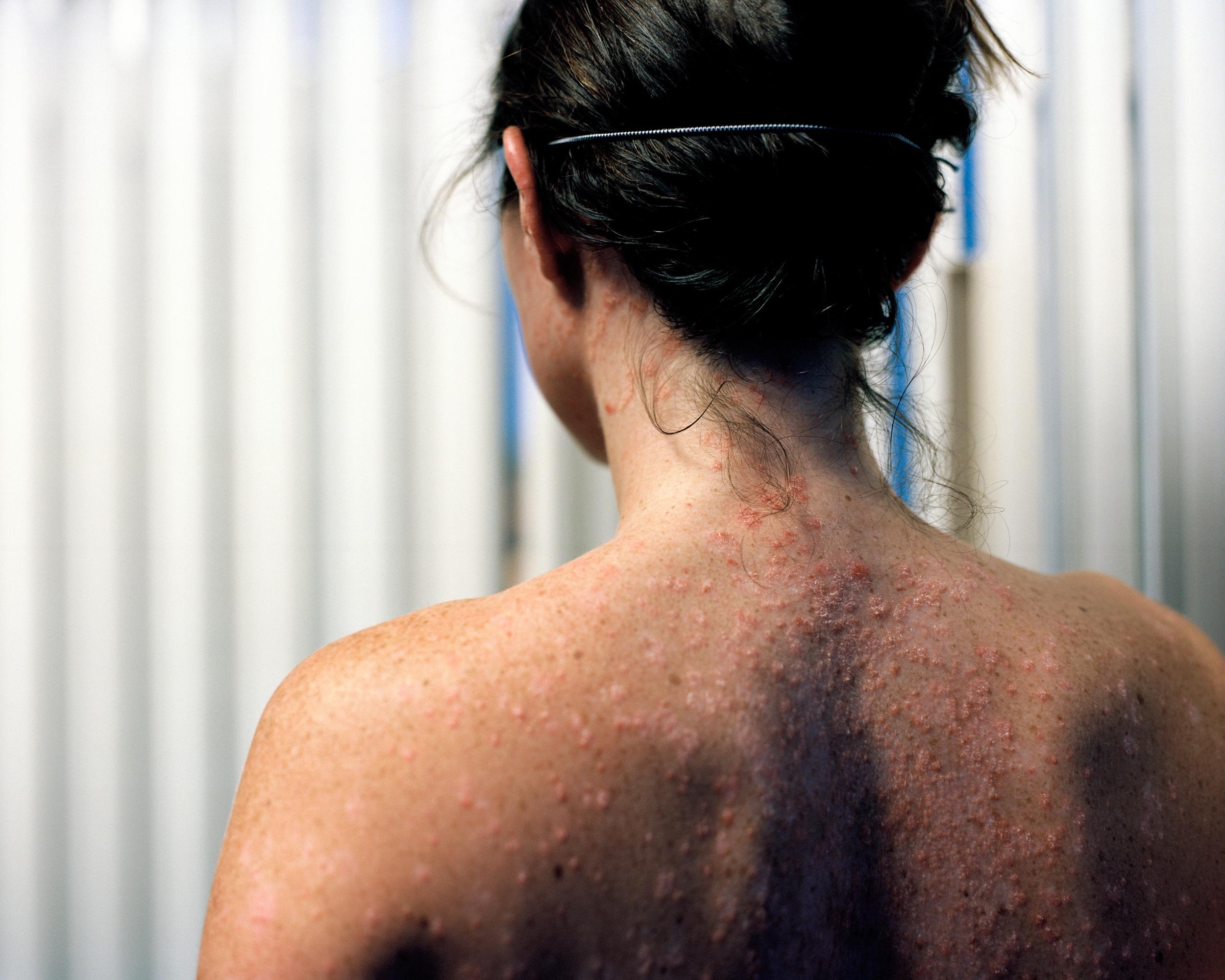Sharing photos on social media helped me come to terms with my skin condition
Even though I do think “oh my god that is my naked body out there in the public eye”, it has helped bring the community together and made everyone living with the condition, including myself, feel empowered

Your support helps us to tell the story
From reproductive rights to climate change to Big Tech, The Independent is on the ground when the story is developing. Whether it's investigating the financials of Elon Musk's pro-Trump PAC or producing our latest documentary, 'The A Word', which shines a light on the American women fighting for reproductive rights, we know how important it is to parse out the facts from the messaging.
At such a critical moment in US history, we need reporters on the ground. Your donation allows us to keep sending journalists to speak to both sides of the story.
The Independent is trusted by Americans across the entire political spectrum. And unlike many other quality news outlets, we choose not to lock Americans out of our reporting and analysis with paywalls. We believe quality journalism should be available to everyone, paid for by those who can afford it.
Your support makes all the difference.Looking back I didn’t realise the impact that publicly sharing intimate photos of my skin condition would have. It was ballsy but I needed help and it was my way of reaching out.
We are bombarded with images of the ‘perfect’ body or skin type but as more of us are finding out, sharing photos of our ‘non-perfect’ bodies on social media helps challenge the idea of what is considered beautiful and it can be very liberating.
I was diagnosed with psoriasis at 14 and started treatment aged 18 which is when I started taking photos of my skin. I showed them to my family and friends and found that whilst it was nerve-racking, it was also a big release. It was really difficult to communicate what it was like to live with a chronic skin condition so, as well as showing what I was going through physically, the images helped me start a conversation about how I felt emotionally.
A few years later, having unsuccessfully tried many treatments, I felt at an all-time low. I couldn’t find an escape and my only source of information and support, between the sparse dermatology appointments, was online. But everything I read on the internet about psoriasis was negative.
Research by the PsoHappy App tells us that in the UK, sufferers are 24 per cent less happy than the average person and report lower levels of self-confidence so I needed to find way a way to tackle it.
I wanted to share my story, connect and laugh with people, learn and, above all, belong to a community who knew exactly what it meant to bleed all over the sheets at night. That was when I decided to share my photos publicly.
So, in Sept 2015 when I started PUVA treatment, I documented it with my photographer friend. We spent months taking photos, depicting psoriasis as non-medical, personal, humane and a thing of beauty.
I posted the images online, asking people to join in sharing their psoriasis stories by using the hashtag #getyourskinout and was immediately bombarded with words of relief, compassion and empathy. Many related to my journey and shared their own photos and stories. Connecting and sharing with other people this way was – and still is - incredibly liberating.
I’ve now lived with psoriasis for 12 years and although it’s a challenge, it has shaped me for the better making me brave, resilient and empathetic. Even though I do think “oh my god that is my naked body out there in the public eye”, it has helped bring the community together and made everyone living with the condition, including myself, feel empowered and not defined by living with psoriasis.
Yes, posting naked pictures of yourself may not be the norm, but sometimes you have to shock to make a statement. So, I encourage anyone out there to be ballsy, take control and get your skin out.
Join our commenting forum
Join thought-provoking conversations, follow other Independent readers and see their replies
Comments